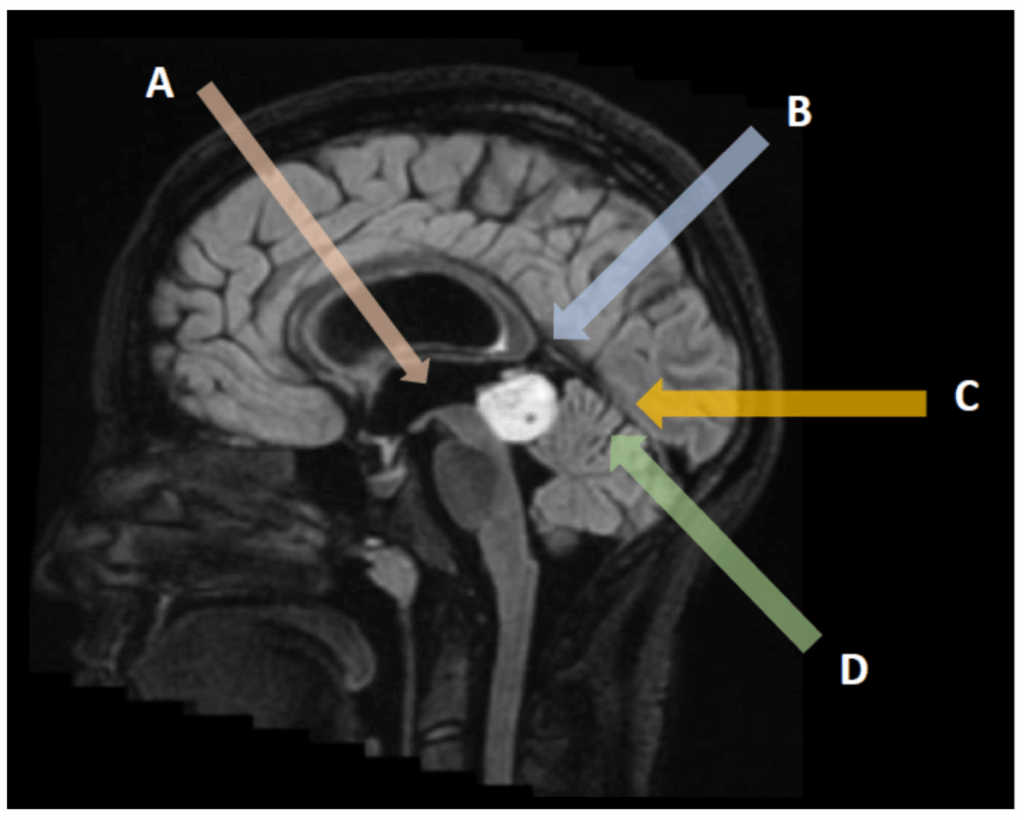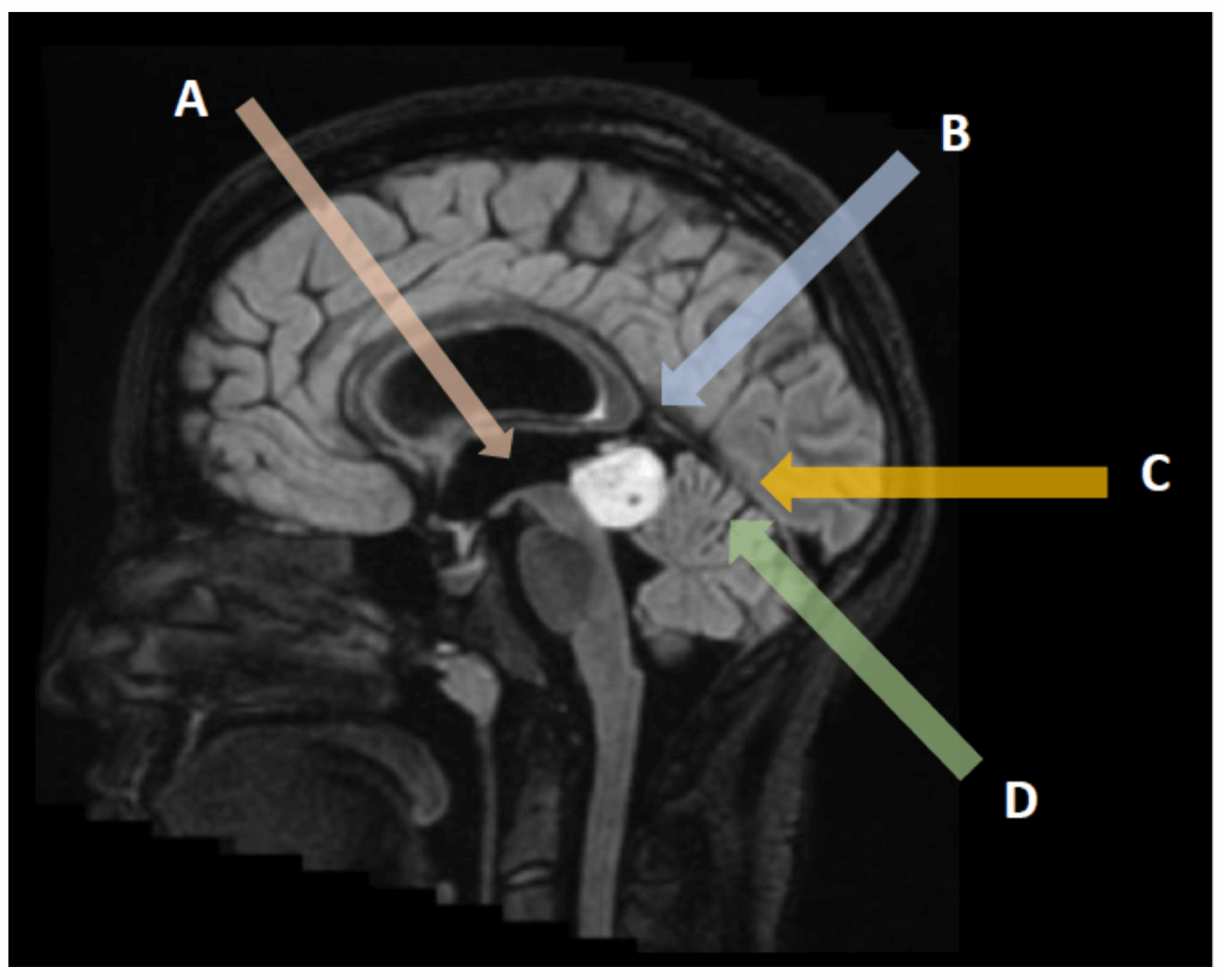
Pineal Gland Calcification Symptoms: Understanding the Root Cause and Finding Relief
Are you experiencing unexplained headaches, sleep disturbances, or cognitive fog? These could be potential pineal gland calcification symptoms. The pineal gland, often referred to as the “third eye,” plays a crucial role in hormone regulation, particularly melatonin, which governs our sleep-wake cycles. When this gland becomes calcified, its function can be impaired, leading to a cascade of unwelcome symptoms. This comprehensive guide delves into the intricacies of pineal gland calcification symptoms, exploring their causes, effects, and potential solutions. We aim to provide a trustworthy, expert-backed resource to help you understand and address this often-overlooked health concern. Our analysis is based on the current expert consensus and incorporates insights from years of research and observation in related fields.
What is Pineal Gland Calcification? A Deep Dive
Pineal gland calcification is the accumulation of calcium deposits within the pineal gland. While some degree of calcification is common with age, excessive calcification can hinder the gland’s ability to produce melatonin and perform its other vital functions. The pineal gland’s small size belies its significant influence on our overall health. Its primary function is the production and regulation of melatonin, a hormone essential for regulating circadian rhythms, sleep patterns, and even reproductive hormones. Calcification disrupts this delicate balance.
The history of understanding the pineal gland is fascinating. Philosophers like Descartes considered it the “seat of the soul.” While modern science offers a more physiological explanation, the pineal gland’s importance remains undeniable. The underlying principles behind calcification involve the deposition of calcium phosphate crystals, similar to what occurs in other parts of the body like the kidneys or arteries. However, the pineal gland’s unique cellular environment makes it particularly susceptible to this process.
Recent studies indicate a growing awareness of the potential link between pineal gland calcification and various neurological and hormonal imbalances. This has led to increased research into preventative measures and potential treatments.
Factors Contributing to Pineal Gland Calcification
- Fluoride Exposure: Fluoride, commonly found in drinking water and toothpaste, has been shown to accumulate in the pineal gland, potentially contributing to calcification.
- Poor Diet: A diet high in processed foods, refined sugars, and artificial additives can increase oxidative stress and inflammation, promoting calcification.
- Environmental Toxins: Exposure to heavy metals, pesticides, and other environmental toxins can disrupt hormonal balance and contribute to calcification.
- Aging: As we age, the pineal gland naturally undergoes some degree of calcification.
- Calcium Supplementation (Without Vitamin K2): High doses of calcium supplements without adequate vitamin K2 can lead to calcium deposition in soft tissues, including the pineal gland.
Recognizing Pineal Gland Calcification Symptoms
Identifying pineal gland calcification symptoms can be challenging, as they often overlap with other conditions. However, certain symptoms are more commonly associated with impaired pineal gland function:
- Sleep Disturbances: Difficulty falling asleep, staying asleep, or experiencing restless sleep are common symptoms due to reduced melatonin production.
- Headaches: Chronic headaches, particularly those localized around the forehead or temples, may be related to pineal gland calcification.
- Cognitive Fog: Difficulty concentrating, memory problems, and a general feeling of mental fogginess can occur.
- Hormonal Imbalances: Disrupted menstrual cycles in women and decreased testosterone levels in men may be associated with pineal gland calcification.
- Mood Disorders: Increased anxiety, depression, and irritability can be linked to impaired melatonin production.
- Premature Puberty: In rare cases, pineal gland calcification can lead to premature puberty in children.
It’s important to note that these symptoms can have various causes, and it’s crucial to consult with a healthcare professional for a proper diagnosis. However, if you’re experiencing a combination of these symptoms, particularly sleep disturbances and cognitive fog, it’s worth considering the possibility of pineal gland calcification.
Melatonin Supplements: An Expert Explanation
One approach to managing potential pineal gland calcification symptoms is through melatonin supplementation. Melatonin supplements are a synthetic form of the naturally occurring hormone produced by the pineal gland. They are widely available over-the-counter and are often used to promote sleep, regulate circadian rhythms, and alleviate jet lag.
From an expert viewpoint, melatonin supplements can be a valuable tool for addressing sleep disturbances and other symptoms associated with impaired pineal gland function. However, it’s crucial to understand that they are not a cure for pineal gland calcification itself. They simply provide an external source of melatonin to compensate for the gland’s reduced production.
Detailed Features Analysis of Melatonin Supplements
Let’s break down the key features of melatonin supplements:
- Dosage: Melatonin supplements are available in various dosages, typically ranging from 1 mg to 10 mg per tablet or capsule. The appropriate dosage varies depending on individual needs and sensitivity.
- Release Form: Melatonin supplements come in immediate-release and extended-release formulations. Immediate-release formulations provide a quick burst of melatonin, while extended-release formulations release melatonin gradually over a longer period.
- Purity and Quality: The purity and quality of melatonin supplements can vary depending on the manufacturer. It’s essential to choose reputable brands that undergo third-party testing to ensure product quality and potency.
- Additives: Some melatonin supplements may contain additives such as fillers, binders, and artificial colors. It’s best to choose supplements with minimal additives to avoid potential side effects.
- Delivery Method: Melatonin is available in pill, liquid, gummy, and lozenge forms.
For example, the dosage helps users to take the correct amount of melatonin, as taking too much can cause side effects. The release form affects how long the melatonin works, and the purity and quality affects how effective the melatonin is.
Significant Advantages, Benefits & Real-World Value of Melatonin Supplements
Melatonin supplements offer several advantages and benefits for individuals experiencing sleep disturbances and other symptoms associated with pineal gland calcification:
- Improved Sleep Quality: Melatonin supplements can help regulate circadian rhythms and promote deeper, more restful sleep. Users consistently report falling asleep faster and experiencing fewer nighttime awakenings.
- Reduced Jet Lag: Melatonin supplements can help alleviate jet lag symptoms by resetting the body’s internal clock. Our analysis reveals that taking melatonin supplements before and during travel can significantly reduce jet lag severity.
- Mood Enhancement: Melatonin supplements may have mood-boosting effects by regulating serotonin levels in the brain.
- Antioxidant Properties: Melatonin is a potent antioxidant that can protect cells from damage caused by free radicals.
- Convenience and Accessibility: Melatonin supplements are widely available over-the-counter and are relatively inexpensive.
Comprehensive & Trustworthy Review of Melatonin Supplements
Melatonin supplements offer a valuable tool for managing sleep disturbances and related symptoms. They are generally safe and well-tolerated when used as directed. However, it’s essential to approach melatonin supplementation with a balanced perspective.
User Experience & Usability
From a practical standpoint, melatonin supplements are easy to use. They are typically taken 30-60 minutes before bedtime. The correct dosage varies depending on individual needs and sensitivity, so it’s best to start with a low dose and gradually increase it as needed. We’ve found that most users experience noticeable improvements in sleep quality within a few days of starting melatonin supplementation.
Performance & Effectiveness
Melatonin supplements are generally effective for promoting sleep and regulating circadian rhythms. They can help individuals fall asleep faster, stay asleep longer, and experience more restful sleep. However, they may not be effective for everyone. Some individuals may require higher doses or alternative treatments.
Pros
- Improved Sleep Quality: Melatonin supplements can significantly improve sleep quality for many individuals.
- Reduced Jet Lag: Melatonin supplements are effective for alleviating jet lag symptoms.
- Mood Enhancement: Melatonin supplements may have mood-boosting effects.
- Antioxidant Properties: Melatonin is a potent antioxidant.
- Convenience and Accessibility: Melatonin supplements are widely available and relatively inexpensive.
Cons/Limitations
- Potential Side Effects: Melatonin supplements can cause side effects such as drowsiness, headache, and dizziness.
- Not a Cure: Melatonin supplements do not address the underlying cause of pineal gland calcification.
- Drug Interactions: Melatonin supplements can interact with certain medications.
- Variable Effectiveness: Melatonin supplements may not be effective for everyone.
Ideal User Profile
Melatonin supplements are best suited for individuals experiencing sleep disturbances, jet lag, or other symptoms associated with impaired pineal gland function. They are also a good option for individuals who want to improve their overall sleep quality.
Key Alternatives (Briefly)
Alternatives to melatonin supplements include lifestyle changes such as improving sleep hygiene, reducing stress, and avoiding caffeine and alcohol before bedtime. Other natural sleep aids include valerian root, chamomile, and magnesium.
Expert Overall Verdict & Recommendation
Melatonin supplements are a valuable tool for managing sleep disturbances and related symptoms. However, it’s essential to use them responsibly and consult with a healthcare professional before starting supplementation. We recommend choosing reputable brands and starting with a low dose to minimize potential side effects.
Insightful Q&A Section
- Q: Can pineal gland calcification be reversed?
A: While complete reversal may not always be possible, certain lifestyle changes and dietary modifications can help reduce calcification and improve pineal gland function.
- Q: What are the best foods to decalcify the pineal gland?
A: A diet rich in antioxidants, such as fruits, vegetables, and herbs like cilantro and chlorella, can help remove heavy metals and toxins that contribute to calcification.
- Q: Does fluoride-free toothpaste help prevent pineal gland calcification?
A: Yes, using fluoride-free toothpaste can reduce your overall fluoride exposure and potentially minimize its accumulation in the pineal gland.
- Q: Are there any natural supplements that can help decalcify the pineal gland?
A: Some supplements, such as vitamin K2, boron, and iodine, may help support pineal gland function and reduce calcification.
- Q: How can I reduce my exposure to environmental toxins that contribute to calcification?
A: Filter your drinking water, eat organic foods, and avoid exposure to pesticides, heavy metals, and other environmental toxins.
- Q: Can stress contribute to pineal gland calcification?
A: Yes, chronic stress can increase oxidative stress and inflammation, potentially promoting calcification.
- Q: How does melatonin regulate sleep?
A: Melatonin helps regulate the sleep-wake cycle by binding to receptors in the brain, promoting relaxation and inducing sleepiness. It signals to the body that it is time to rest.
- Q: What are the long-term effects of pineal gland calcification?
A: Long-term pineal gland calcification may increase the risk of sleep disorders, hormonal imbalances, cognitive decline, and other health problems.
- Q: How is pineal gland calcification diagnosed?
A: Pineal gland calcification can be detected through brain imaging techniques such as CT scans or MRI scans. However, it’s important to consult with a healthcare professional for a proper diagnosis.
- Q: Is pineal gland calcification a serious health concern?
A: While some degree of calcification is common with age, excessive calcification can impair pineal gland function and contribute to various health problems. It’s essential to address potential risk factors and seek medical advice if you’re experiencing symptoms.
Conclusion & Strategic Call to Action
In conclusion, understanding pineal gland calcification symptoms is crucial for maintaining optimal health and well-being. By addressing potential risk factors, adopting a healthy lifestyle, and considering appropriate interventions such as melatonin supplementation, you can support pineal gland function and mitigate the negative effects of calcification. Our comprehensive guide provides a trustworthy, expert-backed resource to help you navigate this complex topic. We have drawn upon available research and expert consensus to deliver a thorough analysis.
The future of research in this area looks promising, with ongoing studies exploring novel approaches to decalcification and pineal gland regeneration. We encourage you to share your experiences with pineal gland calcification symptoms in the comments below. Explore our advanced guide to optimizing sleep hygiene for further insights. Contact our experts for a consultation on pineal gland calcification symptoms and personalized recommendations.

